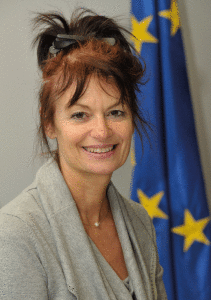EU twisting Facts

Speaking before the EU elections, Glover reflected upon her role, which was introduced by the outgoing President of the European Commission, José Manuel Barroso.
Glover was appointed in December 2011 to provide the President of the EU Executive with first-class independent scientific advice. A trained biologist who holds a chair in Molecular and Cell Biology at the University of Aberdeen, she previously served as a chief scientific advisor for Scotland (2006-2011).
More than two years into her job, she seems to have learned a great deal about the internal working of the EU's flagship institution, and her assessment of what goes on inside the Commission's walls is not rosy.
Commissioners with 'crazy ideas'
"When I spoke to President Barroso about taking up this role, I said to him that, for me, it would only be attractive if I was regarded as an independent chief scientific advisor and, that for me to have any value or credibility, I need to focus on evidence and not on political considerations," she recalled.
Describing her role at the Commission, Glover said she enjoyed considerable freedom in providing scientific advice to Barroso. Although her opinions remain confidential, she has made widely-publicised comments on subjects as diverse - and controversial - as climate change, genetic modification or shale gas.
But it appears she also found it difficult to disentangle the Commission's evidence gathering processes from what she calls the "political imperative" that's behind them. Illustrating her point, she used a fictitious example:
"Let's imagine a Commissioner over the weekend thinks, 'Let's ban the use of credit cards in the EU because credit cards lead to personal debt'. So, that commissioner will come in on Monday morning and say to his or her Director General, 'find me the evidence that demonstrates that this is the case.'"
"The Commissioner's staff might resist the idea but, in the end, they will do exactly what they're asked and 'find the evidence' to show that credit card use leads to personal debt, even though this may not be the case in reality."
"So you can see where this is going," Glover said: "You're building up an evidence base which is not really the best."
Biased evidence
To back its policy proposals, the Commission often outsources the evidence-gathering part of the job to external consulting firms, which provide 'impact assessment studies' or 'research' that are often branded as 'independent'.
However, Glover says such consultancies have little incentive to produce evidence that contradicts the Commission's political agenda. "If they want repeat business, they are not going to go out and find the evidence to show that this is a crazy idea," she says.
To be fair, the Commission is not alone in trying to distort facts, Glover said. The same goes for the other two EU institutions - the European Parliament and the EU Council of Ministers, which represents the twenty-eight EU member states.
"What happens at the moment - whether it's in Commission, Parliament or Council - is that time and time again, if people don't like what's being proposed, what they say is that there is something wrong with the evidence. So everybody blames the evidence and nobody is honest about the fact that, in many cases, understanding the evidence is the best possible platform to make the logical extension into policy. But they don't like it so they say 'We need more evidence'. And, of course, scientists can always produce more evidence."
Read the full article here: http://pit.so/4
